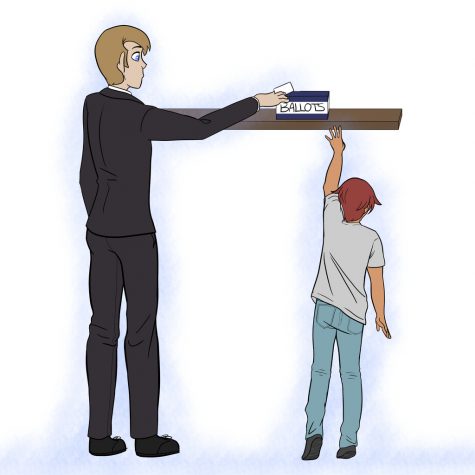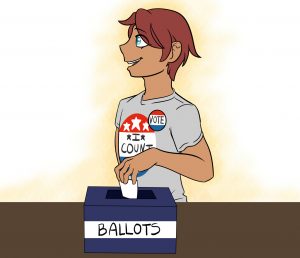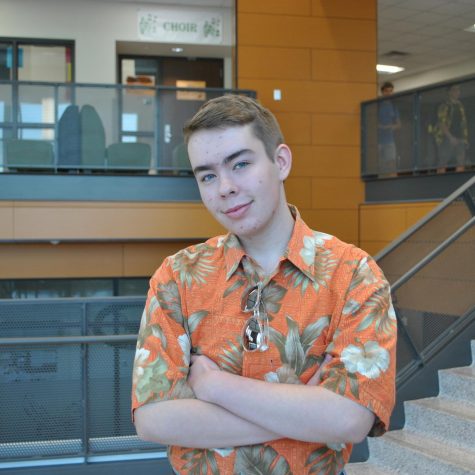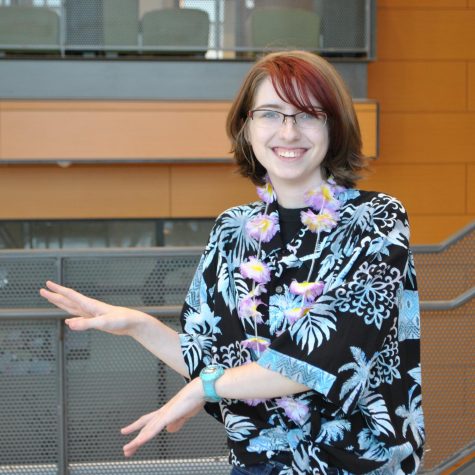The voting age should be lowered to sixteen
March 9, 2019
Throughout America’s history, policies on voting have changed continuously to reflect a constantly evolving culture. At the beginning of the United State’s elections, only white men aged 21 or older with a claim to a piece of land decided who held seats in office. However, amendments have been added to expand electoral responsibilities to people of all races and genders over the age of 18, making voting an intrinsic civil right for all American citizens. In a society that is increasingly impacted by the political activism of the youth, it’s time to extend that right to 16 and 17-year-olds nationwide.
According to neuropsychologists, humans have two types of cognition: hot and cold. Hot cognitive abilities are put to use in stressful situations with short reaction periods, while cold cognitive abilities are used under conditions like voting; less stressful experiences with a significant amount of time to consider options. In his 2009 study, developmental psychologist Laurence Steinberg found that by the age of 16, adolescents are fully prepared to make decisions using cold cognition, and therefore are perfectly able to cast a genuine vote. This data directly contrast the claims that teenagers would put elections in jeopardy due to their biological inability to make informed choices. Yet, while the voting age is fixed at 18, 16 and 17-year-olds use an enormous amount of hot cognitive abilities every day while driving and working legally, arguably bigger personal responsibilities than submitting a ballot.
It’s often reasoned that lowering the voting age is useless because 16 and 17-year-olds simply don’t want to vote, but election data from Takoma Park, Maryland, a city that allows 16 and 17-year-olds to vote in local elections proves otherwise. In 2017 the National Association of Student Personnel Administrators (NASPA) reported that Takoma citizens under 18 made up 16.9 percent of all voters in the 2017 election. The turnout rate for 16 and 17-year-olds accounted for nearly half of all residents that fit within that age group, four times higher the turnout rate for 18-year-olds. These results demonstrate significant youth interest in electoral participation within the U.S. Furthermore, statistics aside, voting isn’t a business. Supply and demand isn’t a vital fiscal issue where voting policies are concerned, and lowering the voting age would ultimately be of sole benefit of the youth and the candidates they decide to support. Just as all citizens above 18, the youth who want to vote will vote, and those who don’t will stay home.
Another popular argument against lowering the voting age claims that 16-year-olds are simply not educated enough to vote. This debate, however, ignores that fact that there are no required educational prerequisites for adults to cast their ballots. Presumably it is hoped that those voting would have passed their freshman government class, but there is no process for submitting high school transcripts to the state along with registration forms, and certainly, no pop quiz on the candidates before a ballot is accepted. Voting as an American citizen is a right in the U.S, regardless of whether an individual dropped out of high school or graduated with a Ph.D., and restricting voting privileges based on a supposed lack of education has historical roots in racist and sexist anti-suffrage movements.
Just the last year has shown the American public how much youth advocacy can make a difference, exemplified by the significant political presence of survivors of the Parkland shooting in Feb. 2018. Because of continuous legislative gun control efforts of friends and family of the victims, as well as pro-gun rights advocacy by 17-year-old Kyle Kashuv, debates concerning weapon laws have shifted to the forefront of American politics. Based on both the demonstrated interest and the important changes these high schoolers have accomplished, it’s clear that lowering the voting age would make a significant difference.
It’s time to let go of unfair stereotypes and uninformed misconceptions about teenagers and recognize that lowering the voting age is neither a dangerous or useless prospect. Data from Takoma, Maryland has demonstrated that youth in the U.S are interested in exercising their right to vote, and the recent political climate in America has seen a significant influence from 16 and 17-year-olds even in the absence of an amended election policy. Basing the minimum age to vote on suspected immaturity, apathy, and lack of education is a ridiculous and unfounded standard that the U.S would do well to abandon. The plain truth is that youth will continue to be politically active no matter what the voting age is. Allowing 16 and 17-year-olds to cast their ballots would direct that advocacy towards candidates that reflect the values of the next generation.




